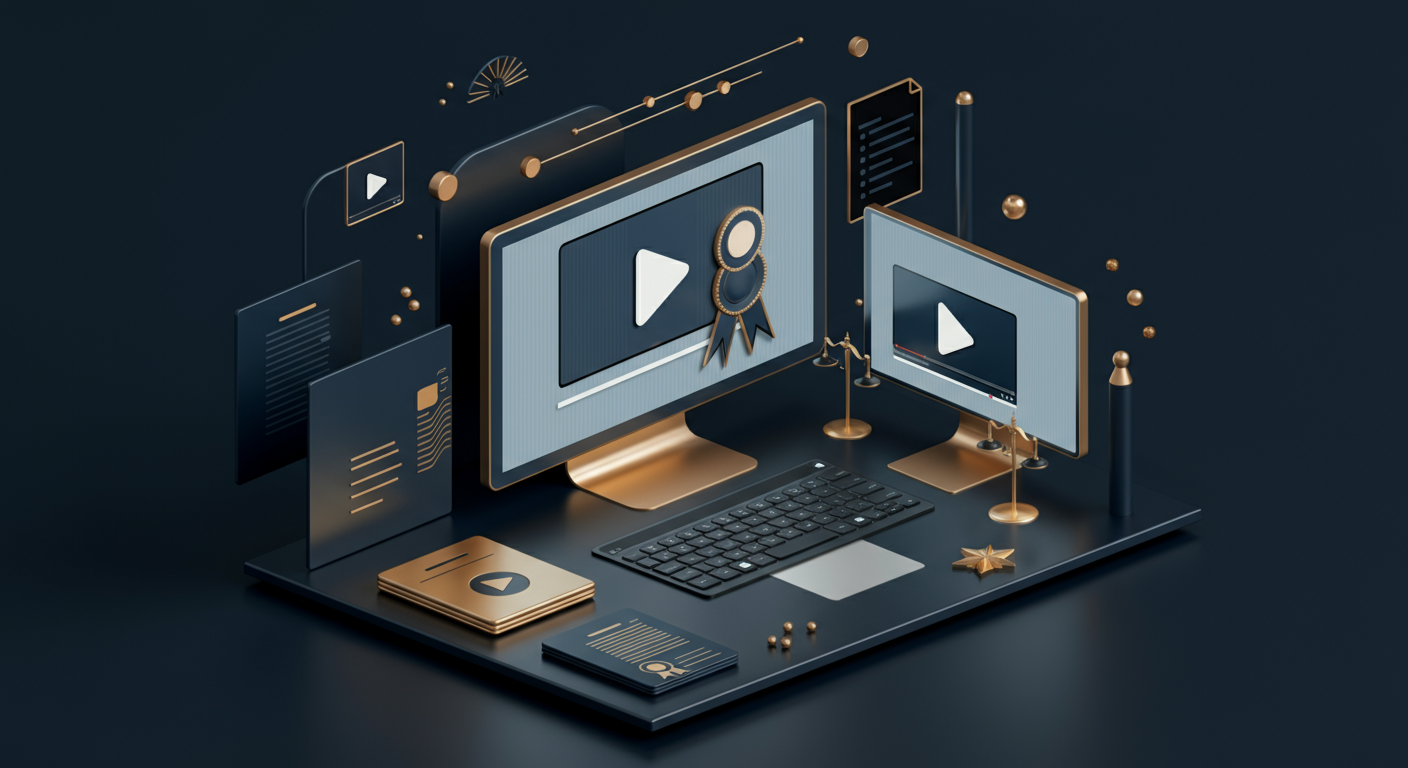In the dynamic world of business, video programming plays a pivotal role in enhancing customer experiences and creating engaging atmospheres. However, as video content becomes an integral part of business strategies, understanding the legal aspects of video programming in business becomes crucial. Whether you’re running a bustling casino, a cozy restaurant, or a lively bar, navigating this legal landscape is essential to ensure compliance and avoid potential pitfalls.
Imagine your business setting the perfect ambiance with a captivating video display, only to face legal challenges due to copyright infringement or licensing issues. This is a reality many businesses encounter when they overlook the importance of adhering to legal guidelines. By understanding the legal considerations involved in video programming, you can safeguard your business from costly disputes and enhance your reputation as a responsible entity.
In this blog post, we’ll delve into the key legal considerations you need to be aware of when integrating video programming into your business operations. From securing the right licenses to understanding privacy laws and ensuring compliance with industry regulations, we’ll provide you with the insights needed to navigate this complex terrain successfully. Our expertise at DLM Media, a leader in commercial video programming solutions, will guide you through these intricacies, ensuring your business remains on the right side of the law.
Ready to explore how you can leverage video programming while staying compliant? Let’s dive into the essential legal aspects that will empower your business to thrive in the competitive landscape of the hospitality and entertainment industries.
Understanding Intellectual Property Rights in Video Programming
In the realm of video programming, understanding and respecting intellectual property rights is crucial for businesses to avoid legal complications. Whether you’re using music, footage, or images, securing the necessary permissions is essential to protect your content and prevent costly fines. As video programming becomes more integral to business strategies, knowing the legal aspects involved is vital for compliance and safeguarding your business reputation.
Intellectual property rights encompass a variety of protections, including copyrights, trademarks, and patents, each serving a distinct purpose. For businesses in the hospitality and entertainment sectors, such as casinos, restaurants, and bars, navigating these rights is particularly important to ensure that all content used is legally compliant. Failure to do so can lead to significant legal challenges, including lawsuits and financial penalties.
Types of Licenses Required for Video Content
When incorporating video programming into your business, understanding the types of licenses required is essential. The most common licenses include synchronization licenses, which allow the use of music in conjunction with visual media, and master use licenses, which permit the use of a specific recording. Additionally, businesses may need to secure performance licenses if the content is played in a public setting.
For example, a restaurant playing background music videos must ensure they have the appropriate licenses from music rights organizations. This not only protects the business legally but also supports the artists and creators of the content. By securing these licenses, businesses can confidently use video programming to enhance their customer experience without the risk of legal repercussions.
Case Studies of Intellectual Property Disputes
Several high-profile cases highlight the importance of adhering to intellectual property laws in video programming. One notable example involved a popular restaurant chain that faced a lawsuit for using copyrighted music without proper licensing. The case resulted in substantial fines and negative publicity, underscoring the importance of securing the right permissions.
Another case involved a casino that used footage from a major sporting event in its promotional videos without obtaining the necessary licenses. The legal battle that ensued not only cost the casino financially but also damaged its reputation. These examples serve as a reminder of the critical need for businesses to understand and comply with intellectual property rights to avoid similar pitfalls.
Protecting Your Business from Legal Issues
To protect your business from potential legal issues related to video programming, it’s essential to conduct a thorough audit of all content used and ensure that all necessary licenses are in place. This includes reviewing contracts with content creators and distributors to confirm that all rights are secured.
Additionally, businesses should stay informed about changes in intellectual property laws and seek legal advice when necessary. By taking these proactive steps, businesses can mitigate risks and focus on leveraging video programming to enhance their customer experience and competitive edge.
For more insights on navigating the legal aspects of video programming in business, explore our other resources at DLM Media.
Contracts and Agreements in Video Programming
In the world of video programming, contracts and agreements are indispensable tools that help define responsibilities and prevent misunderstandings. Whether you’re producing content for a bustling casino, a cozy restaurant, or a lively bar, having clear contracts in place can safeguard your business from potential legal disputes. Competitor analysis emphasizes the significance of talent and location releases, as well as service agreements, which are crucial components in the video production process.
Understanding the different types of contracts needed in video programming is vital for businesses in the hospitality and entertainment industries. These contracts not only outline the scope of work but also ensure that all parties involved are on the same page regarding the project’s expectations and deliverables. By clearly defining roles and responsibilities, businesses can avoid costly misunderstandings and focus on creating engaging content for their audiences.
Types of Contracts in Video Programming
There are several types of contracts that businesses should consider when engaging in video programming. The most common include:
- Talent Releases: These agreements grant permission to use an individual’s likeness in the video content. Without a talent release, businesses may face legal challenges if individuals featured in the video decide to retract their consent.
- Location Releases: Essential for filming in specific locations, these contracts ensure that businesses have the legal right to shoot in a particular venue. This prevents potential disputes with property owners and ensures compliance with local filming regulations.
- Service Agreements: These contracts outline the services to be provided, timelines, and payment terms. They are crucial for setting clear expectations between the business and service providers, such as video production companies or freelance videographers.
Examples and Templates of Standard Contracts
To help businesses navigate the complexities of video programming contracts, it’s beneficial to have access to examples or templates of standard agreements used in the industry. These templates can serve as a starting point for drafting tailored contracts that meet specific business needs.
For instance, a talent release template typically includes clauses about the scope of use, duration, and compensation. Similarly, a location release template might detail the permitted filming areas, duration of use, and any restrictions imposed by the property owner.
By utilizing these templates, businesses can ensure that their contracts are comprehensive and legally sound, reducing the risk of disputes and enhancing the efficiency of the video production process. For more detailed guidance on creating effective contracts, businesses can explore additional resources available on DLM Media.
The Importance of Customizing Contracts
While templates provide a useful foundation, it’s crucial for businesses to customize contracts to fit their unique circumstances. This involves tailoring clauses to address specific project requirements, local regulations, and the particular needs of the parties involved.
Customization ensures that contracts are not only legally compliant but also aligned with the business’s operational goals. It allows for the inclusion of specific terms that protect the business’s interests, such as confidentiality agreements, intellectual property rights, and dispute resolution mechanisms.
By investing time in customizing contracts, businesses can create robust agreements that support their video programming initiatives and foster successful collaborations. For further insights on optimizing contracts for your business, consider consulting with legal professionals or exploring resources at DLM Media.
Compliance with Privacy and Accessibility Laws
In today’s digital landscape, adhering to privacy and accessibility laws is paramount for businesses utilizing video programming. Regulations such as the General Data Protection Regulation (GDPR) and the Americans with Disabilities Act (ADA) play a critical role in shaping how companies manage video content. Non-compliance can lead to significant legal repercussions, including hefty fines and reputational damage.
Businesses in the hospitality and entertainment sectors, such as casinos, restaurants, and bars, must be particularly vigilant. These industries often engage with a diverse audience, making it essential to ensure that video content is both accessible and respectful of user privacy. By understanding and implementing compliance measures, businesses can enhance customer trust and avoid potential legal pitfalls.
Understanding Privacy Regulations
Privacy laws like GDPR require businesses to handle personal data with utmost care. This means obtaining explicit consent from individuals before collecting or processing their data through video programming. Failure to comply can result in fines of up to 4% of annual global turnover or €20 million, whichever is greater.
To ensure compliance, businesses should implement robust data protection policies, conduct regular audits, and train staff on privacy best practices. Additionally, businesses should consider anonymizing data wherever possible and providing clear privacy notices to users.
The Importance of Accessibility in Video Programming
Accessibility is not just a legal obligation but a business imperative. The ADA mandates that video content must be accessible to individuals with disabilities, including those who are deaf or hard of hearing. This often involves providing closed captions or transcripts for video content.
Statistics indicate that over 15% of the global population lives with some form of disability, highlighting the importance of accessible content. By ensuring accessibility, businesses can reach a broader audience and enhance their brand image as inclusive and socially responsible.
Compliance Strategies for Businesses
To effectively navigate compliance with privacy and accessibility laws, businesses should adopt a proactive approach. This includes:
- Conducting regular compliance audits to identify and address potential gaps.
- Investing in technology solutions that support accessibility, such as captioning software.
- Engaging with legal experts to stay updated on evolving regulations.
- Providing training for staff on compliance requirements and best practices.
By implementing these strategies, businesses can not only avoid legal issues but also foster a more inclusive and trustworthy environment for their customers.
Empowering Your Business with Legal Compliance in Video Programming
As businesses navigate the dynamic landscape of video programming, understanding the legal aspects of video programming in business is essential for compliance and success. By focusing on key areas such as intellectual property rights, contracts, and privacy laws, businesses can leverage video content to enhance their customer experience while avoiding potential legal pitfalls.
To ensure your business stays on the right side of the law, consider these critical elements:
- Intellectual Property Rights: Always secure the necessary licenses for music, footage, and images to protect your content and avoid costly disputes.
- Contracts and Agreements: Draft comprehensive contracts, including talent and location releases, to clearly define roles and responsibilities, preventing misunderstandings.
- Privacy and Accessibility Compliance: Adhere to regulations such as GDPR and ADA to protect user data and ensure content accessibility, fostering trust and inclusivity.
By addressing these areas, businesses can confidently integrate video programming into their strategies, creating an engaging environment for customers. However, given the complexities involved, it is wise to consult legal experts for tailored advice and guidance.
We encourage you to review your current practices and take proactive steps towards compliance. For more resources and expert insights, visit DLM Media’s website, where you’ll find comprehensive solutions to enhance your business’s video programming initiatives.





